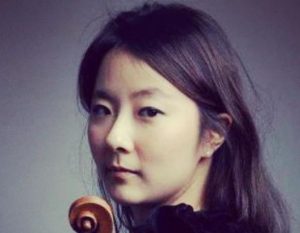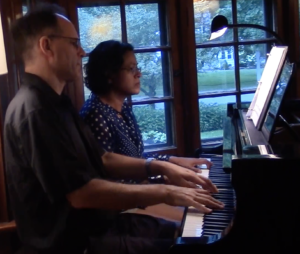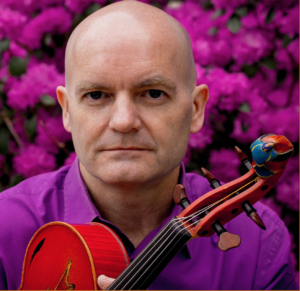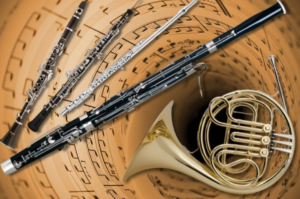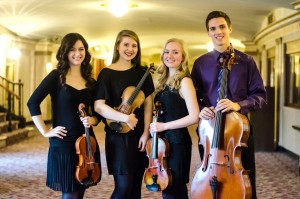I’ve been fortunate to have my pieces played by some terrific ensembles and musicians, such as the Quintet of the Americas, the Aspen Contemporary Ensemble, the American Wild Ensemble, pianist Ian Hobson, pianist Margaret Kampmeier, violist Rudolf Haken, cellist Scott Kluksdahl, cellist Mimi Hwang, and hornist Peter Kurau.
My music is very much grounded in the “common practice”—classical and Romantic music. At the same time, it’s nothing that an 18th- or 19th-century composer could have written. Popular music has been a huge influence—rock rhythms and chord progressions. And there are bits of West African rhythm, neo-classicism, and things that I think (I hope) you won’t have heard anywhere.
Just as my chamber music is influenced by popular music, my songs are classically-influenced pop: The two come together. Some people say my songs sound like musical theater; this wasn’t my intent, but I think there’s some truth to it.
People sometimes ask whether my composing is influenced by my music theory/cognition research, or vice versa. In my conscious thought, they’re very separate: my composing is very intuitive—really a kind of controlled improvising—not at all “theory-driven.” But I’m sure they do influence each other. Sometimes when I’m thinking about a musical idea—say, a harmonic progression or melodic pattern—in my research work, I find it turning up in my compositions. Or perhaps I’ll find it in something I composed many years earlier.
All music and lyrics are © David Temperley. Some scores and parts are posted here; others are available on request.
